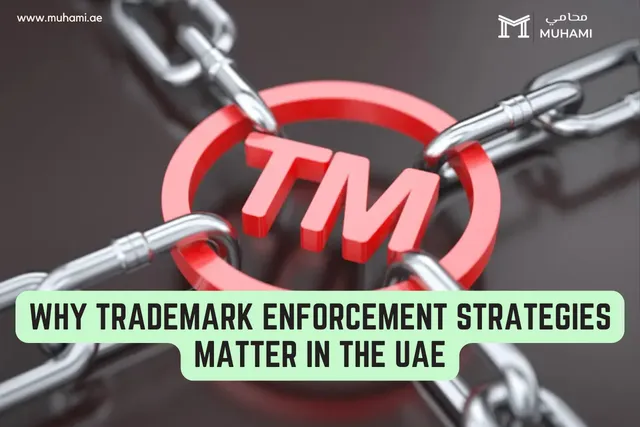A Comparison of Trusts vs Foundations in the UAE

Introduction
Whether you are a business owner, high-net-worth individual, or family enterprise owner, trusts and foundations offer essential tools for protecting personal assets and ensuring their future distribution according to your wishes. The United Arab Emirates (UAE), with its globally aligned legal frameworks in free zones like the Dubai International Financial Centre (DIFC) and Abu Dhabi Global Market (ADGM), stands out as a premier jurisdiction for asset protection and succession planning.
What are trusts and foundations?
Common Law Trust
A trust is a legal arrangement based on a contract (more commonly known as a trust deed) whereby the creator of the trust (settlor) transfers assets to a trusted friend, family member or professional individual (trustee), who holds the assets on behalf of designated beneficiaries. The trustee is legally obligated to act in the best interests of the beneficiaries when administering the assets, following the terms set out in the trust deed and/or the applicable legal regime.
Foundation
A foundation is a legal entity established through a charter and by-laws, whereby the founder transfers assets to the foundation, which becomes the independent owner of those assets. The foundation is managed by a council, acting in accordance with the founder’s objectives and the governing documents, for the benefit of designated beneficiaries or to achieve specific purposes.
Civil Law Trust
A civil law trust is a legal entity which combines key elements of both common law trusts and foundations. A settlor can create a legal structure where assets are transferred to a trust which has its own separate legal entity. The trustee will have a duty to represent and manage the trust which holds and manages the assets on behalf of designated beneficiaries and/or according to a specific purpose under the legal framework provided by the applicable law and the registered trust deed.
While it is commonly believed that these structures are solely for charitable purposes, this is not the case. In fact, they can offer significant advantages in managing and administering personal finances, providing flexibility and control over wealth distribution and protection.
Trusts v. Foundations
There are many differences between common law trusts, civil law trusts, and foundation even though they tend to exist for a common purpose. Some key differences which are explored in more detail below.
Legal Personality
In common law trusts, the assets are directly owned by one or more trusted individuals chosen by the settlor. Unlike a common law trust, a foundation and a civil law trust has its own legal personality, allowing it to directly hold and manage assets under its name while maintaining a high degree of control.
Security and Risk
A foundation (or civil law trust) may offer greater security than a trust due to its independent legal personality, which allows it to hold assets in its own name, separate from any individuals. The management of a foundation is governed by a council, and while it is less flexible than a trust, this structure can provide more stability and oversight. The foundation’s operations are bound by the terms set out in its charter and by-laws, ensuring clearer governance and reducing the risk of discretionary decisions that might undermine asset security.
In contrast, in a common law trust, legal title to the assets is transferred to one or more trustees, who have the discretion to manage the assets, offering flexibility but also potentially exposing the assets to greater risks or mismanagement.
Confidentiality
The terms of the charter and by-laws of a foundation (or the trust deed of a civil law trust) must be submitted to the regulatory authority for registration. While these documents are not made publicly available, they are not entirely private either, as they remain accessible to relevant authorities for regulatory and compliance purposes. In contrast, the terms of a common law trust are typically not disclosed to any regulatory body, maintaining a higher degree of confidentiality.
Registration and Certificates
Due to their ongoing registration and compliance requirements, civil law trusts and foundations obtain official documentation, such as licenses and certificates of good standing, to prove their existence.
In contrast, common law trusts do not have registration or submission obligations. The only document that confirms their existence is the trust deed itself. However, since the trust deed is often a confidential document, both ADGM and DIFC offer the option to issue a certificate confirming the existence of a trust for a fee (typically USD 100). While ADGM has recently considered imposing disclosure obligations for certain trusts under specific conditions, no such obligation has yet been implemented.
Taxation
A common law trust is a transparent tax structure, meaning that the trust itself is not subject to taxation. Instead, the trustee and the beneficiaries are individually responsible for disclosing ownership and any benefits derived from the trust. This can be a concern for individuals who are taxed in foreign jurisdictions, although it is not an issue in the UAE, as there is no income or capital gains tax on individuals.
In contrast, a civil law trust or a foundation is generally treated as a taxable entity and must register for corporate tax. However, if these structures are used to hold assets exclusively for the benefit of individuals within a family unit, they may apply to the tax authority for a family foundation exemption. If granted, this exemption allows the structure to be treated as fiscally transparent, similar to a common law trust, thereby becoming exempt from corporate taxation.
Cross-jurisdictional Implications
Common law trusts, civil law trusts, and foundations can own property both inside and outside the UAE. The settlor of a common law trust can choose the governing law and jurisdiction in the trust deed. Civil law trusts and foundations are governed by the laws of the jurisdiction where they were established.
A key advantage of foundations is that the courts of the relevant jurisdiction generally do not recognize foreign forced heirship rules for property owned by a foundation in the UAE. This principle can also apply to property held globally, though its enforceability may vary depending on the circumstances.
There may be additional cross-jurisdictional implications to consider depending on your specific situation. Contact us to fully assess their relevance and impact.
Costs
A foundation and civil law trust may incur higher costs due to, inter alia, their separate legal personality, administrative fees, and ongoing compliance obligations. In contrast, establishing a common law trust typically involves only the drafting of a trust deed, resulting in significantly lower costs. A cost breakdown for options in the UAE is offered below.
Options for Trusts and Foundations
DIFC & ADGM
As free zones with their own independent common law legal systems, both DIFC and ADGM allow for the creation of common law trusts and the establishment of foundations.
RAKEZ ICC
RAKEZ ICC is not an independent legal jurisdiction, meaning it operates under the broader UAE legal framework. As a result, establishing a common law trust within RAKEZ is not permitted.
It is possible to establish a foundation in RAKEZ ICC, governed by its own set of regulations. Notably, founders have the flexibility to designate the ADGM or DIFC as the governing jurisdiction for resolving conflicts, disputes, or uncertainties related to the interpretation or administration of the foundation.
UAE Mainland
The UAE recognizes the existence of foundations only within the aforementioned free zones as these operate under different legal systems. Being a civil law jurisdiction, the UAE Mainland does not allow for the creation of common law trusts. However, the country has introduced a new legal framework for setting up civil law trusts.
Costs
ADGM & DIFC Trusts: no setting up fee or annual cost. Only main cost may be the legal fees involved with the legal advice linked to the creation of a trust and drafting of the trust deed.
ADGM Foundation: setting up fee and annual cost of USD 500. A corporate service provider (CSP) must be appointed to set up in ADGM, with costs usually starting at USD 2,500.
DIFC Foundation: setting up fee and annual cost from USD 350. A CSP need not be appointed to set up in DIFC but is recommended to mitigate costs.
RAKEZ ICC Foundation: setting up fee and annual cost of AED 750. A CSP need not be appointed to set up in RAKEZ ICC but is recommended to mitigate costs.
UAE Mainland Trust: setting up costs for a UAE Mainland Trust are yet to be determined and will vary according to the Emirate chosen to set up. More information will become available as the UAE government will appoint the relevant regulatory authority in each emirate.
In addition to the costs outlined above, it is highly recommended to appoint a solicitor to navigate the legal obligations, compliance requirements, and the drafting of tailored charters and by-laws when establishing any of these structures.
The fees mentioned for each free zone are based on the current rates at the time of writing and are subject to change periodically, outside the control of Yungo Law.
Conclusion
Trusts and foundations are valuable tools for asset protection, estate planning, and wealth management, each with distinct advantages depending on your needs and the legal framework under which they are established. Whether you are considering a civil law trust in the UAE Mainland, a common law trust within the DIFC or ADGM, or a foundation, it is essential to understand the complexities involved and how these structures can be tailored to meet your goals.
Any Questions?
Connect with lawyers and seek expert legal advice
Share
Find by Article Category
Browse articles by categories
Find Article by Practice Area
Browse articles by practice area
Featured Partnership
Elevate HR and Search
HR Advisory | Search | Coaching
Related Articles

10 Frequently Asked Questions on the UA…
What is the Family Foundation Exemption under UAE Corporate Tax Law? …

10 Frequently Asked Questions on the UAE Family F…
What is the Family Foundation Exemption und…

AI and Copyright: The Anthropic and Met…
In August 2024, authors Andrea Bartz, Charles Graeber, and Kirk Wallace Johnson…

AI and Copyright: The Anthropic and Meta Cases Co…
In August 2024, authors Andrea Bartz, Charles Gra…

Why Trademark Enforcement Strategies Ma…
Why Trademark Enforcement Strategies Matter in the UAE The UAE is a very vib…

Why Trademark Enforcement Strategies Matter in th…
Why Trademark Enforcement Strategies Matter in th…
